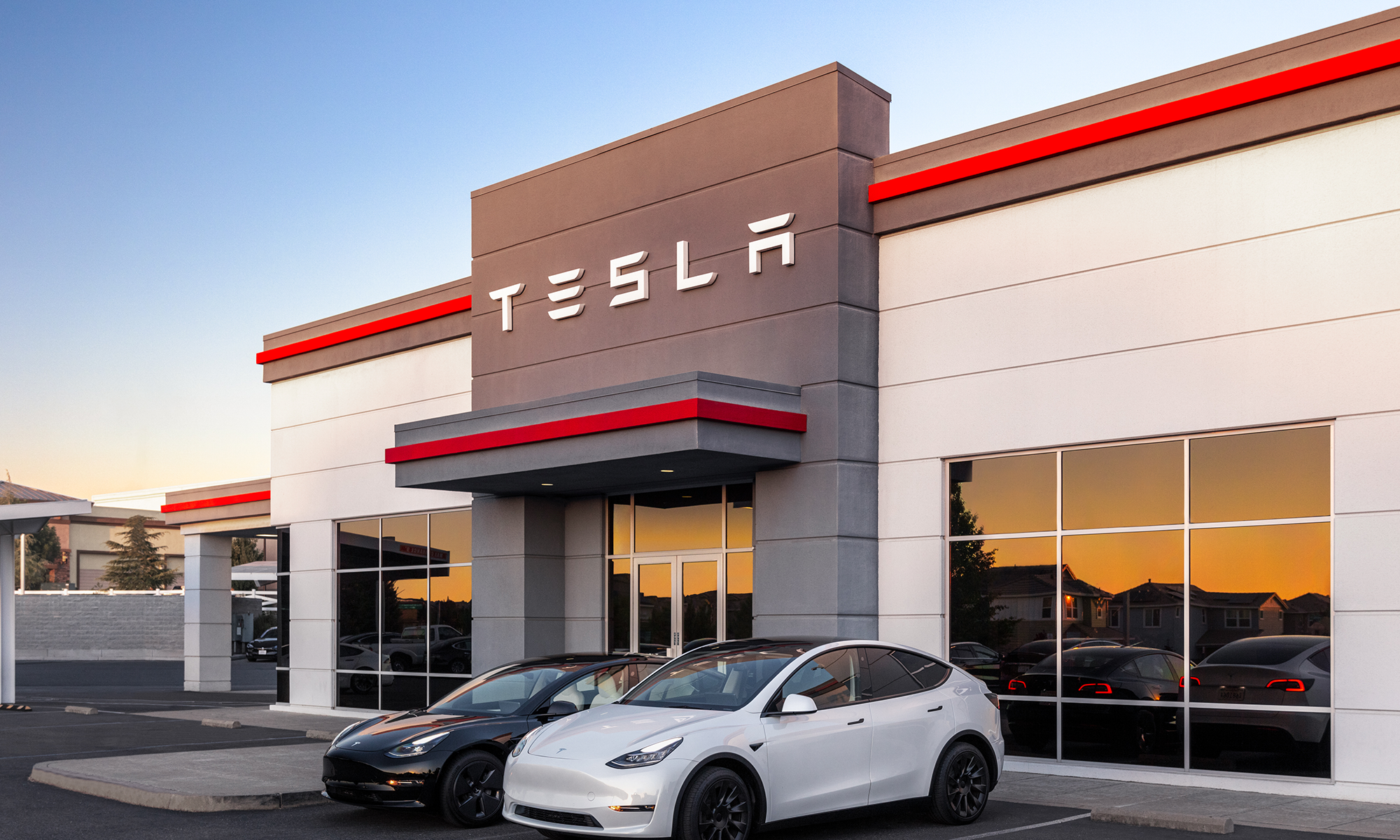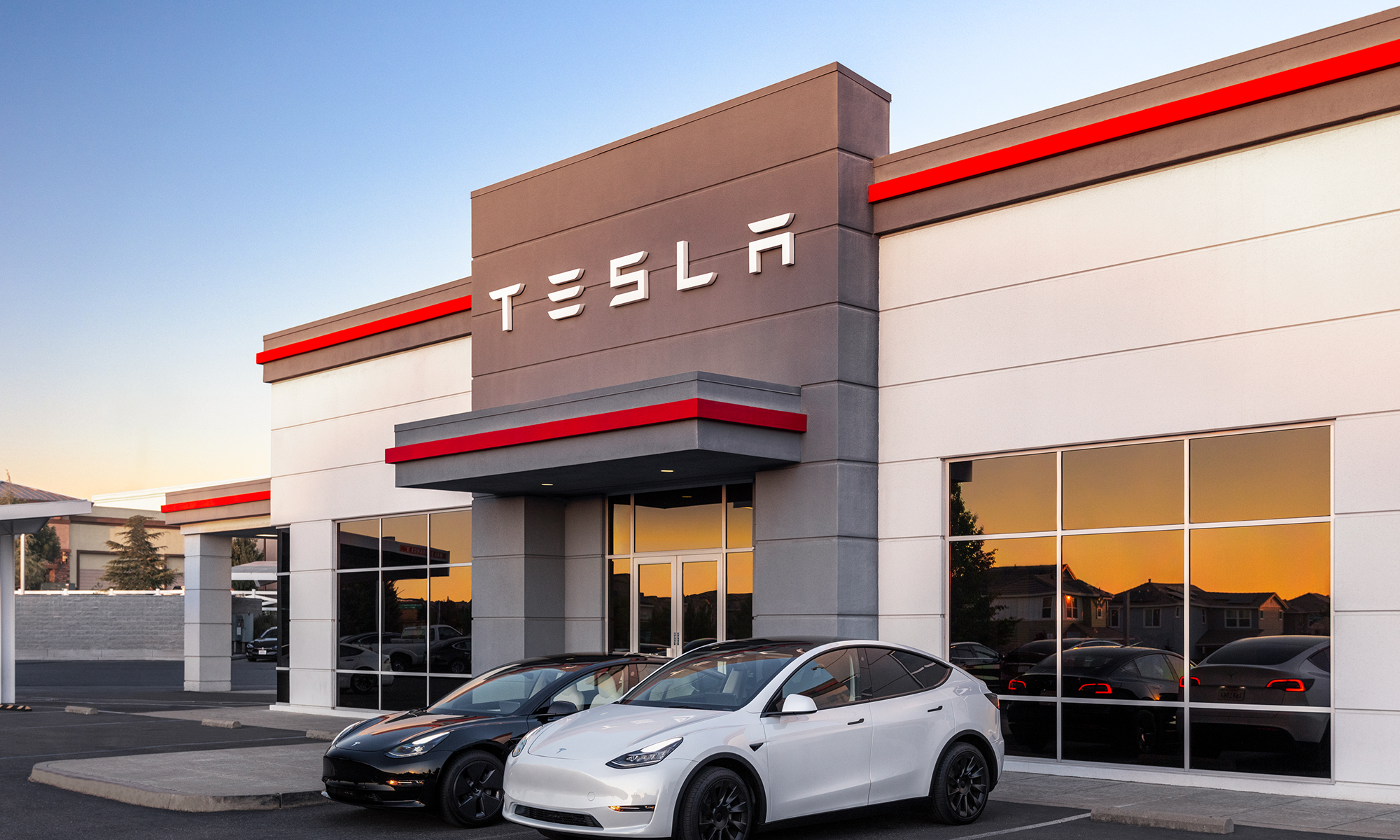For investors, artificial intelligence (AI) is the gift that keeps on giving. AI stocks have helped the market jump 14% so far this year -- an extraordinary achievement when you consider that it has battled a shaky economy, tariffs, and high interest rates all year.
And that gravy train will keep going. Grand View Research reports that the AI market was worth $270.22 billion in 2024 and should reach $3.5 trillion by 2033 for a compound annual growth rate of 31.5%. So, if you want to continue to beat the market for the next several years, you need to be looking closely at AI stocks.
There have been many big winners so far, such as Nvidia, Palantir Technologies, and CoreWeave, that have all enjoyed monster gains this year. If you're looking for some great AI names that haven't caught fire yet, then I recommend considering Tesla (TSLA +0.41%), Salesforce (CRM +1.31%), and Amazon (AMZN +0.42%). I think all three are ripe for a bull run.

Image source: Tesla.
1. Tesla
Tesla is one of the world's best-known automakers and a true innovator in electric vehicles, battery charging, and autonomous vehicles. But the stock hasn't been a winner so far this year, underperforming the market with only a 6% year-to-date gain.

NASDAQ: TSLA
Key Data Points
Tesla has been hampered by a lot of backlash. CEO Elon Musk took a central role in the U.S. presidential election and in setting up the unofficial Department of Government Efficiency (DOGE), and he campaigned for a far-right party in German elections. Whether you agree or disagree with Musk's political leanings, it's clear that mixing politics with a publicly traded company comes with risk.
But on the plus side, Tesla is gearing up for a huge quarter. The company announced that it delivered more than 497,000 vehicles in the quarter, a record for the company. A federal tax credit of $7,500 expired at the end of the quarter, likely encouraging buyers to make their purchases before Oct. 1.
Tesla is also working to ramp up its Robotaxi autonomous service with its Model Y vehicles. The Robotaxi service is currently available only in Austin, Texas, but Musk has ambitions to offer it nationally. Self-driving taxis could be a huge tailwind for Tesla stock in the future; Cathie Wood from Ark Invest believes that it could comprise 90% of the company's enterprise value by 2030.
2. Salesforce
Salesforce is a software-as-a-service company that's turning to AI to juice its revenue. The company's Agentforce tool is available to help more than a dozen industries, including financial services, retail, technology, manufacturing, construction, and more.

NYSE: CRM
Key Data Points
Salesforce operates customer relationship management software in the cloud. It allows users to see sales, marketing, customer service, and e-commerce tools in an easy-to-use platform that's accessible anywhere. And it says its Agentforce tool helps businesses maximize their autonomous AI agents 16 times faster than traditional approaches.
The company saw revenue of $10.2 billion in the second quarter, up 10% from a year ago, and its data cloud and AI annual recurring revenue was up 120% from a year ago.
The continuing adaption of Agentforce (the company says it's closed 12,000 deals since launching the tool) encouraged management to increase third-quarter and full-year guidance. Salesforce stock is down about 35% on the year, but numbers like this should help push it higher.
3. Amazon
Amazon is a heavy hitter with AI, both in its huge e-commerce division and the fast-growing Amazon Web Services (AWS). The company has more than 1 million robots working in its warehouses and fulfillment centers to help streamline deliveries.

NASDAQ: AMZN
Key Data Points
And AWS is increasingly in demand as companies roll out their own AI-powered platforms and need data centers with the computing power to make them work. AWS is the global leader in cloud computing, with a 30% market share.
That segment is smaller than the company's e-commerce network, but it's perhaps more important to its success. Amazon.com sales were $136.8 billion in the second quarter, but because e-commerce has low profit margins, the company earned only $9 billion in profit. Meanwhile, AWS generated $30.8 billion in revenue and a cool $10.1 billion in profit.
The weak margins in e-commerce, combined with international trade challenges this year, have contributed to push Amazon stock lower, and it is roughly flat for the year. But as AWS continues to grow and fuel profits, this AI stock should find its footing.
The bottom line
Artificial intelligence has a long runway, but Tesla, Salesforce, and Amazon haven't taken off yet. I think all three have great potential to turn 2025's reset into a rebound.








